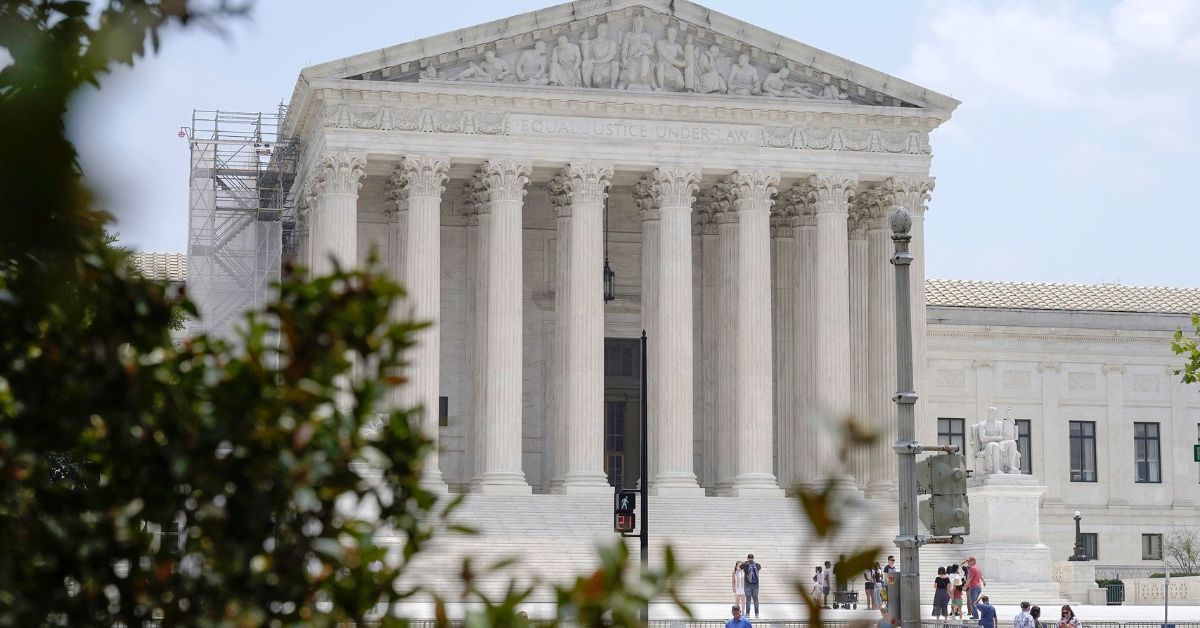The Supreme Court’s landmark decision excluding military service academies from its rejection of race-conscious admissions has been criticized by both dissenting judges and constitutional academics for being contradictory and undermining of the majority’s case.
In a small footnote to the 237-page opinion, Chief Justice John Roberts clarified that the court’s conclusion does not apply to military service academies at this time. First, he noted that the academies were not named as defendants or plaintiffs in the proceedings, and second, he noted that there were “potentially distinct interests” at play.
“No military academy is a party to these cases, however, and none of the courts below addressed the propriety of race-based admissions systems in that context,” the footnote said. “The opinion also does not address the issue, in light of the potentially distinct interests that military academies may present.”
The tweet below verifies the news:
Some constitutional scholars say the Supreme Court’s exemption for military academies undercuts the argument for rejecting race-conscious admissions. https://t.co/R5tBsqSJWd
— CBS News (@CBSNews) July 6, 2023
A friend of the court brief filed by 35 former military commanders, including 4 former chairs of the Joint Chiefs of Staff, contended that affirmative action in higher education was necessary for national security; Roberts did not explain on what those “distinct interests” are.
The previous military heads pleaded with the Supreme Court to think on how changing the admissions criteria might damage the military’s capacity “to serve our nation’s security interests.” In particular, they contended that the diverse forces they would be leading required an equally diversified officer corps, made up of alumni of the academies.
“The importance of maintaining a diverse, highly qualified officer corps has been beyond legitimate dispute for decades,” the brief said. “History has shown that placing a diverse Armed Forces under the command of homogenous leadership is a recipe for internal resentment, discord, and violence.”
If you’re interested in reading more news from the California Examiner, check out these articles:
- A 2-year-old Was Killed by a Driver Backing Out of a Bay Area Garage
- “Forever Chemicals” Have Been Found in Almost Half of the Tap Water in the U.S
“By contrast, units that are diverse across all levels are more cohesive, collaborative, and effective,” the brief continued.
“Prohibiting educational institutions from using modest, race-conscious admissions policies would impair the military’s ability to maintain diverse leadership, and thereby seriously undermine its institutional legitimacy and operational effectiveness,” the brief said.
Justice Sonia Sotomayor questioned the majority’s narrow exception in her dissenting opinion and wondered why religious institutions of higher learning, which were also not a party to the case, weren’t given a similar exemption.
“To the extent the Court suggests national security interests are ‘distinct,’ those interests cannot explain the Court’s narrow exemption, as national security interests are also implicated at civilian universities,” Sotomayor wrote.
While Roberts does not elaborate on his rationale for the carveout, some legal experts seem to agree with Sotomayor that it is incorrect.

CBS News contributor and constitutional law professor at Loyola University Maryland Jessica Levinson said it is “absolutely true” that many graduates of both public and private universities go on to work in national security-related industries.
“If we’re concerned that diversity promotes national security, then this carveout is such an incredibly narrow way to try and achieve that goal,” she said.
The academies are distinct from public and private universities in that all graduates work in national security; in exchange for a commitment of at least five years of service as commissioned officers in the military, students get a full scholarship that covers tuition, accommodation and board.
However, constitutional law and race relations expert F. Michael Higginbotham of the University of Baltimore School of Law argues the majority’s exemption for military schools seems to undermine its own rationale.
There are some things that only the federal government can do, he acknowledged, but he stressed that “the concerns of universities, especially in creating diversity, are the same.”
More articles from the California Examiner that you might enjoy are linked below:
- Sheriff Says Suspect Killed 2 Ladies in Atascosa County and Burned Murder Scene
- Mass Shootings on the Fourth of July Claim 20 Lives and Injure 126 More
“I think that Justice Sotomayor had it right,” Higginbotham said. “It kind of highlights the inconsistencies of the decision of the majority’s position. And I don’t really understand the exemption for the military academies. They are colleges and universities just like many many other institutions in the country.”
As far as Levinson is concerned, there is a contradiction between the decision to discontinue race-conscious admissions for other schools and universities and the grounds for maintaining them in military academies.
“It definitely undercuts the argument that the way to end racial discrimination is to end race-conscious decisions, because the court is allowing military academies to make race-conscious decisions and they’re saying and there’s a really good reason for that…” Levinson said.
“They’re seemingly acknowledging that you don’t want people in leadership positions to be wholly unrepresentative of those whom they’re leading.” However, the Supreme Court’s historic ruling is unlikely to be the last word on affirmative action cases, and the military academies may find themselves involved in one in the future.
“It is entirely possible that the court is going to have to address this again,” Levinson said. “At a certain point, they’re going to have to answer the question of how broadly this ruling applies.”
Read up on the most recent happenings and get some inspiration by going to CaliforniaExaminer.net.




